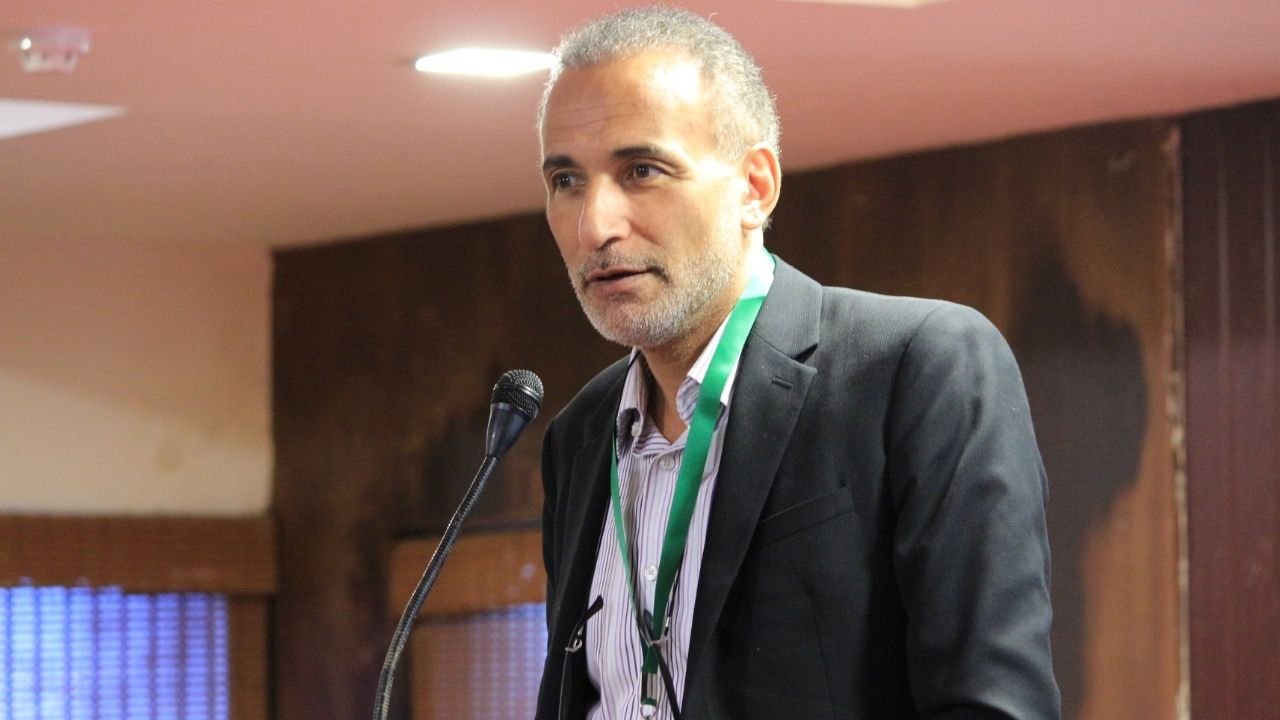Islamic scholar Tariq Ramadan, convicted on appeal of rape and sexual coercion by a Geneva court, is a Swiss intellectual accused of masking violence and radicalism behind a mild facade.
The Swiss court said it “annuls the judgement of 24 May 2023” and sentenced the 62-year-old former Oxford University professor to three years in prison, two of them suspended.
The verdict was slightly more lenient than the three years in prison — half suspended — requested by the prosecutor in the appeals case in May.
The ruling — dated August 28 but not made public until after it was reported by broadcaster RTS early on Tuesday — is likely to be subject to an appeal at Switzerland’s highest court.
Ramadan, a charismatic yet controversial figure in European Islam, has always maintained his innocence.
Ramadan’s accuser, a Muslim convert identified only as “Brigitte”, had testified before the court that he subjected her to rape and other violent sex acts in a Geneva hotel room during the night of October 28, 2008.
The lawyer representing Brigitte said she was repeatedly raped and subjected to “torture and barbarism”.

‘Trap’
Ramadan said that Brigitte invited herself up to his room. He let her kiss him, he said, before quickly ending the encounter.
He said he was the victim of a “trap”.
Brigitte was in her forties at the time of the alleged assault.
She filed a complaint ten years later, telling the court she felt emboldened to come forward following similar complaints filed against Ramadan in France.
The appeals verdict overturns a lower court finding last year acquitting Ramadan of rape and sexual coercion, citing a lack of evidence, contradictory testimonies and “love messages” sent by the plaintiff after the alleged assault.
But during their appeal, Brigitte’s lawyers alleged that Ramadan had exercised significant “control” over the woman, suggesting she had suffered something akin to Stockholm syndrome.
The three appeals court judges pointed to “witness testimony, certificates, medical notes and private expert opinions consistent with the facts presented by the plaintiff”.
“Elements collected during the investigation have thus convinced the chamber of the guilt of the accused,” the court said in a statement.
Ramadan was a professor of contemporary Islamic studies at Oxford and held visiting roles at universities in Qatar and Morocco.
He was forced to take a leave of absence in 2017 when rape allegations surfaced in France at the height of the “Me Too” movement.
In France, he is suspected of raping three women between 2009 and 2016.
His large defence team is fighting a Paris appeals court decision in June that the cases can go to trial.
Who is Tariq Ramadan?
Ramadan, 62, is the grandson of the founder of the Islamist movement, the Muslim Brotherhood in Egypt, and wrote his doctoral thesis on his ancestor.
He basked in the public spotlight in the 2000s as a professor at Britain’s prestigious Oxford university, lecturing across Europe as well as Morocco, Qatar and Japan, drawing crowds of students wherever he went.

Named by Time Magazine in 2004 among the 100 most influential people in the world for his influence on European Muslims, Ramadan has nevertheless stirred controversy throughout his career.
He has rejected allegations of anti-Semitism as attempts to silence what he sees as legitimate criticism of the Israeli state.
And French defenders of the country’s fierce secularism have accused him of smuggling an identitarian subtext within his modernising message, encouraging young girls to wear the Islamic headscarf or spreading religious fundamentalism.
Well turned-out with trademark trimmed grey hair and beard, Ramadan engaged in verbal jousts with opponents including French polemicist Eric Zemmour, who went on to stand as a far-right presidential candidate in 2022.
He fought back against allegations of fundamentalism, saying he encouraged young Muslims to involve themselves in their societies, calling the headscarf a matter of personal choice, urging “contextualisation” of Islam’s founding texts and condemning violence.
Nevertheless, his attempt to acquire French nationality in addition to his Swiss passport to “provide a concrete, positive example of upholding the values of the Republic” was rejected in 2016 by the then prime minister Manuel Valls.
Court battles in France
Ramadan’s fall from grace began in 2017 when he was first targeted with allegations of sexual violence in France.
In total, four women in France ultimately accused him of rapes between 2009 and 2016, while a Swiss woman converted to Islam filed a criminal complaint in 2018 for a rape she said took place in Geneva 10 years before.
The Swiss case is the one in which Ramadan has now been convicted on appeal.
As the allegations broke, he put his 12-year professorship in contemporary Islamic studies at the University of Oxford on hold as support for him haemorrhaged, including from Qatar.
His 2018 admission that he had sex outside his decades of marriage, in which he had four children with a French woman convert, tarnished his image for some religious and community leaders.
Saying he suffers from multiple sclerosis and depression, Ramadan retired early.
Alongside the Swiss case, a Paris appeals court ruled in June this year that Ramadan should be tried for raping three women between 2009 and 2016, a decision his lawyers have challenged.
The scholar spent more than nine months in pre-trial detention in 2018 but was released in November that year.
‘Fragile’ women
French investigators in 2023 said they had identified a pattern across all the rape allegations.
Ramadan would enter private conversations with women who were “especially fragile, with tumultuous life stories, looking for love, validation and spirituality”.
The discussions would quickly take an intimate and then sexual turn, prosecutors said, leading to an in-person meeting.
Psychiatric experts told the investigation that the women had been fervent admirers of Ramadan as a public figure with religious and academic credentials.
But when it came to the meetings, several women described a complete change of character, with Ramadan becoming violent, ranging from slaps to blows and non-consensual penetration.
Ramadan said he had not carried out “a single act, behaviour or sex act that was not discussed beforehand” with the women.






